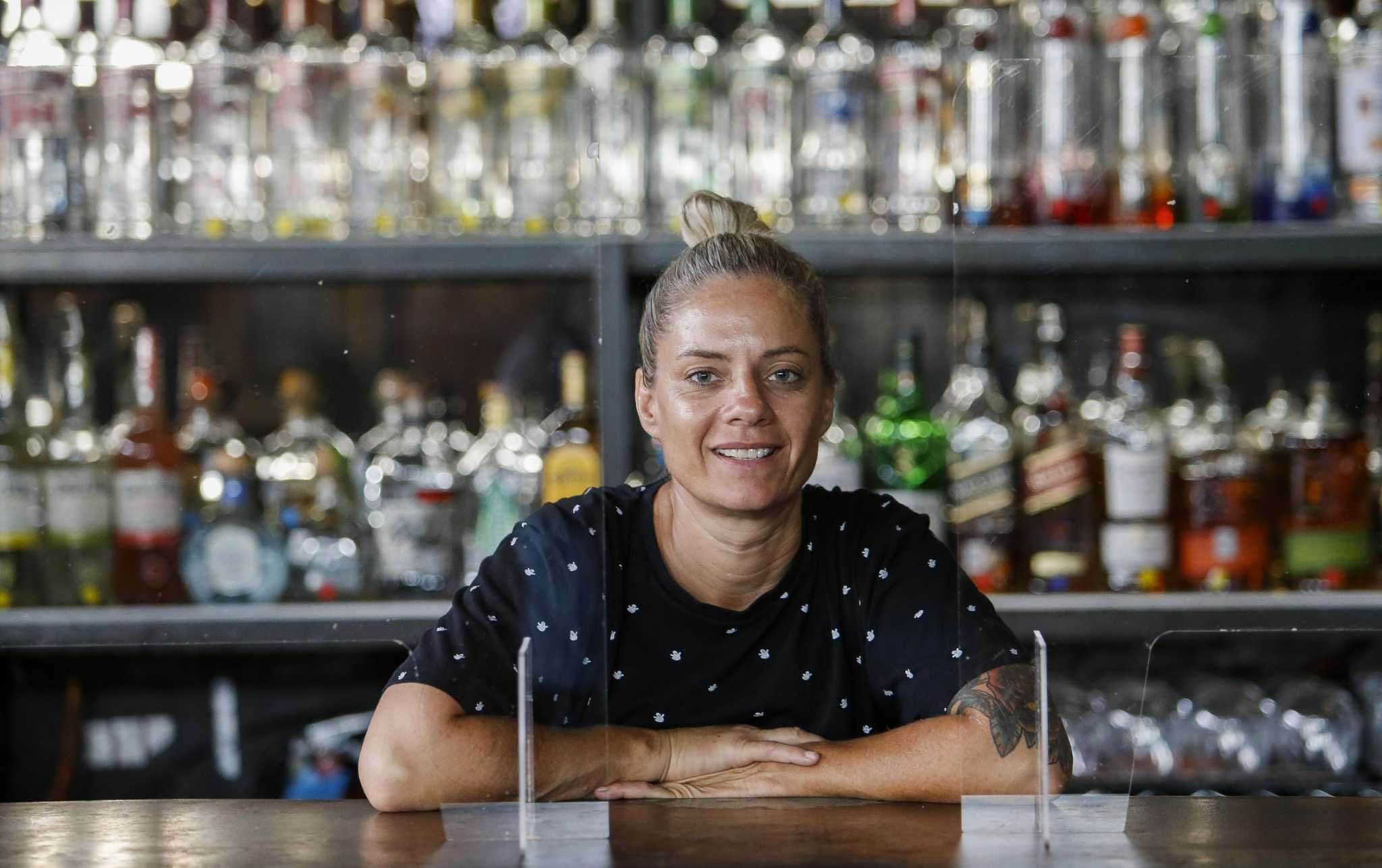Julie Mabry remembers walking with her sister into the Bonham Exchange, San Antonio's iconic queer bar, for the first time in 1989. "I just saw a completely different person. She was just happy, she was in a great mood," Mabry said.
Mabry had watched her sister struggle for years before that night: "From a very young age, my sister's identity was more like a boy," Mabry explained. "And we didn't have these terms, we didn't have this knowledge when we were kids. It's just how she was born."
After watching her fight through years of isolation and addiction, Mabry says the memory of her sister's happiness that night in San Antonio inspired her to open Pearl Bar, the only remaining lesbian-specific bar in Houston.
"It became something I was obsessed with. The idea was to provide an environment for people like my sister so she could have something to do so she wasn't [using drugs], or going through things where she hated herself, because people on the outside didn't see her as normal. That was the purpose of Pearl Bar," said Mabry.
Ten years after launching what has become a pillar of queer nightlife in Houston, Mabry says the ongoing push by conservative lawmakers to restrict LGBTQ rights in Texas has jeopardized her business: for the first time since its doors opened in 2013, Pearl Bar was denied an insurance policy it needs to continue operations earlier this year, specifically because it hosts drag shows.
The denial came amid an ongoing push from the Texas GOP to criminalize drag performances in the state—an effort experts say is designed to target the LGBTQ community as a whole. Bills like SB 12, which a Texas House approved on Friday by a 9-4 vote, would prohibit venues from exposing minors to any "sexually oriented performance." The bill defines sexually oriented performance as "a visual performance that... appeals to the prurient interest in sex," and would empower the Texas Attorney General to pursue civil penalties of up to $10,000 per alleged violation. SB 12 would also classify a violation as a Class A criminal misdemeanor, punishable by a maximum $4,000 fine and up to one year in jail.
"This seems to be a consistent theme emerging with anti-LGBTQ legislation: they're using less direct language in the legislation, and then in enforcement being very selective," said Alejandra Caraballo, clinical instructor at Harvard Law School. "Appeals to the prurient interest in sex... that is a highly subjective standard," Caraballo continued. "The people who are against LGBTQ folks and drag inherently view LGBTQ people as sexualized, even though they're not. And that's the subjective part that allows them to say 'this is sexual in nature,' even though it's not."
Mabry's situation began a few months ago, when she decided she wanted to shop around for a new insurance policy with a new agent. The agent eventually came back to Mabry with bad news: the only underwriter that made an offer quoted Mabry at $91,000—more than double what she paid to insure Pearl Bar just one year prior, according to financial documents shared with Chron.
Days later, the underwriter backpedaled and rescinded the offer entirely.
In a Mar. 23 email reviewed by Chron, Mabry's insurance agent shared the underwriter's explanation for denying Pearl Bar: "we will not consider this one due to the drag," the underwriter wrote. "We won't write this risk."
Mabry chose not to reveal information about the underwriter, explaining that she is concerned about potential backlash from the insurance industry. She chose not to reveal the identity of the insurance agent.
Pearl Bar remains insured through December, but Mabry says she's worried about what comes next. "They're adding in drag as a risk factor… and I can't stay in business if the expenses stay this high," she says.
Caraballo said that Pearl Bar's situation illustrates conservatives' greater strategy for legislating against the LGBTQ community more broadly. "The goal is essentially to regulate these establishments out of business, to make it so that these businesses cannot function," Caraballo said. The true aim of measures like SB 12, Caraballo explained, is to target the LGBTQ community as a whole. "They use children as the pretense but the reality is, they want LGBTQ people out of public life."

joebleaux on May 17th, 2023 at 15:27 UTC »
On a much smaller scale, a restaurant in New Roads, Louisiana was recently run out of business for having a 21+ only drag brunch. The landlord jacked their rent up and they had to shut down. The event was sold out.
JJGIII- on May 17th, 2023 at 14:50 UTC »
Yet child molestation insurance for churches exists. This timeline is complete ass…
MatureChildrensToy on May 17th, 2023 at 14:16 UTC »
It's in a fucking bar, how is this about the children again?